Whether you are enjoying your retirement years or just starting your first summer job, you should be thinking periodically about your retirement plans, especially with some recent tax law changes that provide new savings opportunities. Qualified retirement plans offer tax advantages for the young and old alike and with a little planning you can be certain you’re receiving the best possible benefits.
Here are a few key matters to keep in mind as well as some tax planning opportunities:
Beneficiary Designations
Review your beneficiary designations annually, or anytime you have a major life event such as a marriage, divorce, or death in the family. The named beneficiary on your retirement plan controls who that asset passes to at your death – regardless of the terms of your will or trust – even if it’s a spouse you divorced years ago! Make sure your named beneficiary matches your current wishes, and contact your plan coordinator if you need to update that.
Qualified Charitable Distributions for 70 ½ or Older
If you are 70 ½ or older and have a traditional IRA, you may want to consider a qualified charitable distribution (QCD). A distribution from a traditional IRA is typically taxable when received. But if you decide to give part (or all) of your IRA distribution to charity, you may be able to exclude up to $105,000 (limited to the amount actually sent to charity) from your gross income by making a QCD. This can be a tremendous tax savings opportunity, particularly for clients who no longer itemize their deductions, as it allows them to take advantage of charitable giving and still use the standard deduction.
Required Minimum Distribution Age
With the required minimum distribution (RMD) age now being 73, you want to review what retirement plans require distributions. Starting in 2024, Roth 401(k) accounts in employer plans no longer require RMDs. If you have other retirement accounts that require RMDs in 2024, it is important to remember the valuation of RMDs are as of December 31, 2023.
Contribution Limit
The 401(k) contribution limit for 2024 is $23,000. For individuals 50 or older, you have the option to make a catch-up contribution of an additional $7,500. The IRA contribution limit for 2024 is $7,000. For individuals 50 or older, you have the option to make a catch-up contribution of an additional $1,000.
Child Eligibility for Roth IRA
Is your child working this summer? Don’t forget a child is eligible to make a Roth IRA contribution as long as the child has earned income. The maximum Roth IRA contribution is the lesser of $7,000 or the child’s earned income for 2024. By making a gift, a parent can make the child’s Roth IRA contribution – but the child must have earned income in the tax year for this strategy to work. Roth IRAs don’t allow a tax deduction upfront (which a working minor is unlikely to need anyway), but the money invested grows tax-free and is not subject to income tax when later withdrawn.
529 Plan Roll Over
You may be able to roll over a 529 plan that has been held for at least 15 years to a Roth IRA. The rollover is limited to $35,000 (lifetime), and the beneficiary must remain the same. Contributions made within the last five years are not eligible, and the rollover is subject to Roth IRA contribution limits.
Backdoor Roths
Don’t forget about Backdoor Roths. For individuals who are precluded from making a direct Roth IRA contribution due to income limitations, the Backdoor Roth strategy can be used. The first step is to contribute to a traditional IRA (as a non-deductible contribution) and then, a few days later, convert that traditional IRA to a Roth IRA. Since the contribution was not tax-deductible initially, there is no income tax on the conversion. Roth IRAs provide a number of tax advantages, including income tax free growth and no obligation to take required minimum distributions during the original owner’s life. There are exceptions and caveats, especially if you have an existing traditional IRA, but this can be an effective way for taxpayers with higher income to nonetheless fund a Roth IRA.
Johnson O’Connor Can Help
As you navigate the ever-changing landscape of retirement planning, staying informed and proactive is key to maximizing your benefits and minimizing tax liabilities. Our team at Johnson O’Connor is here to help you understand and leverage these opportunities to secure a more financially stable future.
Feel free to reach out to us with any questions or to schedule a consultation. Together, we can ensure you’re on the right path to achieving your retirement goals.


